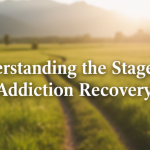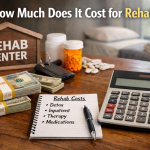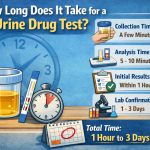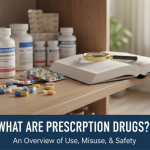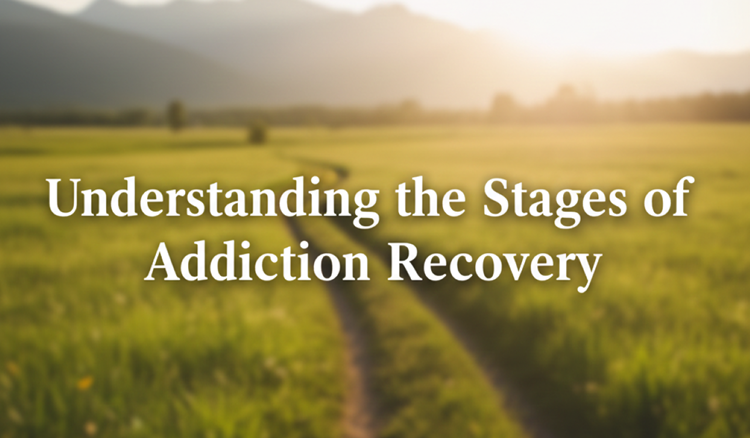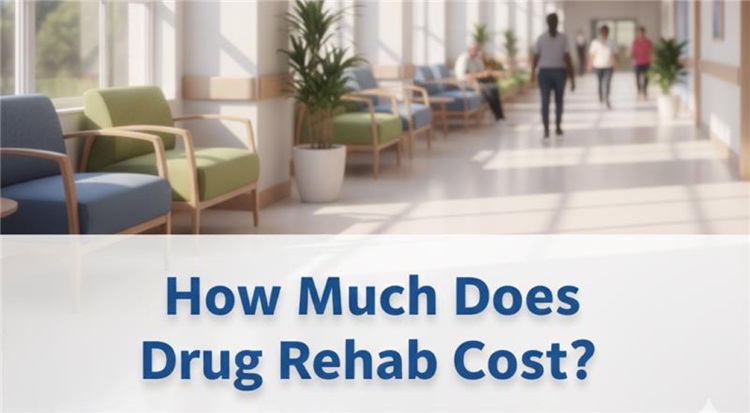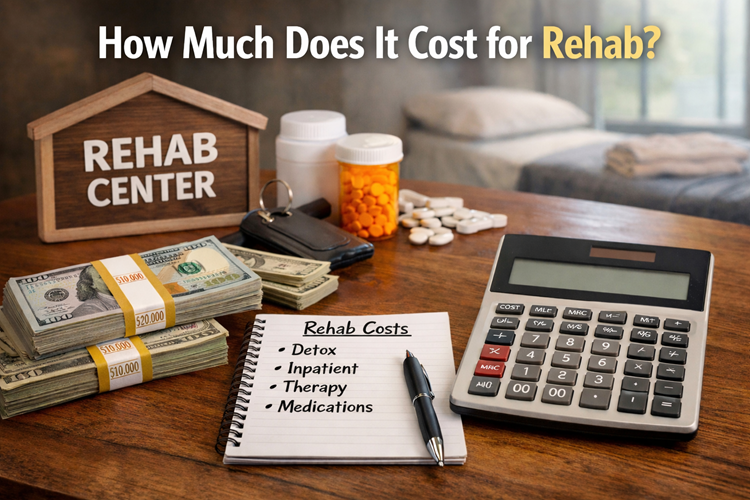If you struggle with addiction, you are not alone. According to the Substance Abuse and Mental Health Services Administration (SAMHSA), 48.5 million people had a substance use disorder in 2023.[1]
There are two main types of drug addiction treatment: inpatient treatment and outpatient treatment. Inpatient treatment programs are the most intensive form of care and require you to live at the facility while you recover. On the other hand, outpatient treatment allows you to live in the comfort of your own home and commute to recovery sessions 3 to 5 days per week.
While outpatient rehab might be more convenient for your schedule, some people need more support than these programs offer. If you have co-occurring mental health disorders, a severe substance use disorder, or have relapsed in the past, you need to attend an inpatient rehab.
Inpatient treatment involves services like medical detox, evidence-based therapies, relapse prevention planning, and more. You’ll have the time you need to recover from the underlying causes of your addiction. Inpatient rehab goes more in-depth than outpatient rehab does, providing you with the extra care you need to achieve long-term sobriety.
In this article, you will learn:
- What are the differences between inpatient and outpatient rehab?
- How does inpatient treatment work?
- Should people with co-occurring mental health conditions attend outpatient rehab?
- Who should go to inpatient treatment in Florida?
What are the Differences Between Inpatient and Outpatient Treatment?
Inpatient rehab programs offer more structure and care than outpatient treatment programs. The main differences between these programs are the living situations, level of care, structure, and intensity.
The breakdown of the differences between inpatient programs and outpatient programs includes:
- Living Situation- Inpatient programs require patients to live at the treatment facility. In contrast, outpatient programs allow you to either live at home or in a sober living program.
- Level of Care and Structure- Inpatient programs offer a highly structured environment, removing you from experiencing outside triggers for relapse. On the other hand, an outpatient program does not control your environment, which means you need to know how to navigate triggers healthily without returning to substance abuse.
- Treatment Intensity- While both programs offer individual therapy, group therapy, and family therapy, they do so at a different level of intensity. Inpatient centers are the most intense level of care, offering multiple sessions of treatment each day, while outpatient rehab only offers treatment sessions 3 to 5 days per week.
- Medical Support- Inpatient provides 24/7 medical support, including medical detox to help you overcome withdrawal. You also have access to medication-assisted treatment and medication management. On the other hand, the medical support offered by outpatient programs is incredibly limited.
- Cost- Lastly, inpatient centers tend to cost more than outpatient centers, simply because they offer more services. You’ll also have to pay for the cost of your housing and food, while outpatient rehab does not require you to pay for those things.
How Does Inpatient Treatment Work?
If you are struggling with drug or alcohol addiction, it’s time to consider attending professional treatment. Inpatient or residential treatment is the highest level of care you can receive. These rehab programs offer all of the tools and services you’ll need to achieve long-term recovery.
During a residential treatment program, you’ll start by completing an in-depth assessment. Your answers will help the treatment team create an individualized treatment plan based on your needs.
Once your personalized care plan is created, you’ll begin medical detox. Residential treatment centers offer this service to ensure you overcome withdrawal safely and comfortably. You’ll be given medications that control your withdrawal symptoms and cravings.
Next, you’ll begin working on the root causes of your addiction using evidence-based therapies. You’ll engage in individual therapy, group counseling, and family therapy. Each method of counseling offers its own benefits.
Residential rehab patients are also offered relapse prevention planning. This helps you learn how to identify potential triggers for relapse and use healthy coping mechanisms to stay sober. You might also create a plan of action to use in case you experience a relapse in the future.
Should People With Co-Occurring Mental Health Conditions Attend Inpatient or Outpatient Treatment?
Co-occurring disorders are characterized by having an addiction and a mental illness at the same time. They are extremely common, as people with untreated mental health symptoms are likely to engage in drug abuse to self-medicate their symptoms.
If you struggle with a comorbid mental health condition, you’ll need more intensive care than an intensive outpatient program can offer. Acute care hospitals, like inpatient treatment facilities, are equipped to help you recover from addiction and mental illness at the same time. You’ll undergo therapy for both mental health and addiction, and be offered medications to control the symptoms of your disorder.
You must attend inpatient drug rehab if your mental health symptoms are severe. For example, if you struggle with self-harm, suicidal thoughts, psychosis, or the symptoms of a manic episode, you’ll need the hospitalization aspect that inpatient drug rehab offers.
Inpatient vs Outpatient Care: Who Should Go to Inpatient Rehab?
Choosing between addiction treatment programs can be difficult, especially if you’ve never attended a rehab facility before. That said, there are some ways to determine what level of care is right for you.
You should choose inpatient rehab offers partial hospitalization or intensive outpatient programs if:
- You need medical detox and medical monitoring to overcome withdrawal
- You’ve attended rehab in the past and relapsed
- You require the medical care that inpatient rehab can offer to address a physical health condition
- You have a comorbid mental health condition
- You’ve tried outpatient rehab in the past and were not successful
- Your substance use disorder is moderate to severe
- You have an extensive addiction history and need specialized care like medication-assisted treatment (MAT)
- You want to engage in in-depth family counseling
- Your treatment goals align with the way that inpatient treatment works
- A medical professional has referred you to a residential program
Get Connected to an Inpatient Rehab Program for Drug and Alcohol Abuse
If you or a loved one suffers from addiction, it’s time to seek professional help. At SHC Health, we promote long-term recovery by offering an evidence-based inpatient treatment center. We will help you achieve continued recovery by using medical detox, clinically proven therapies, relapse prevention planning, and aftercare services.
If you are weighing your treatment options, our treatment team can provide you with an evaluation to determine whether inpatient care is right for you. Contact us today for more information on our inpatient rehab center in Florida.
References:
- The Substance Abuse and Mental Health Services Administration (SAMHSA): Highlights for the 2023 National Survey on Drug Use and Health







